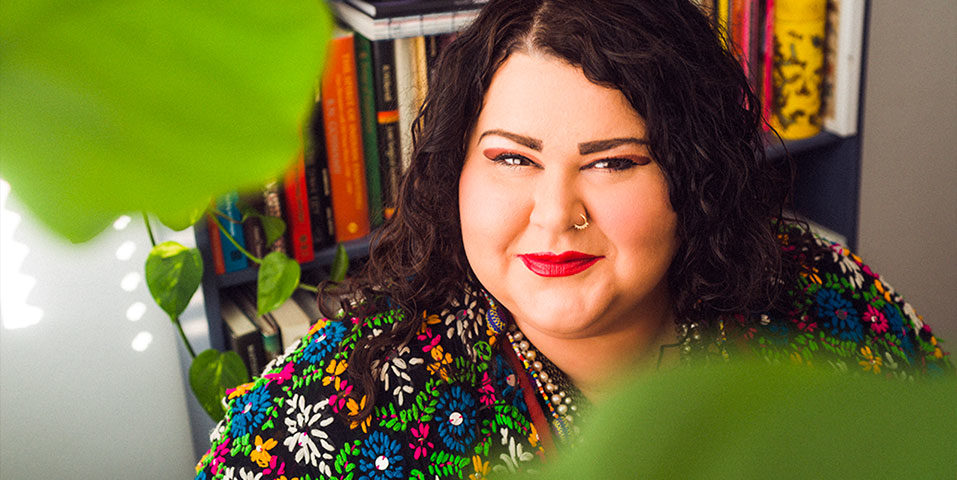Filmmaker Kate Vinen is in her second and final year of the Master of Arts Screen: Documentary. She came to the course with a wealth of knowledge and experience and will be leaving with a heap more. Here, she speaks candidly about taking risks, self-reflection and pursuing her passion for factual storytelling.
After working in the film industry for a number of years, both in production and at film festivals, I decided to pursue the career I had originally set out to – Directing. I had studied part-time directing at AFTRS in 2010 (Directing, Grad Cert) and after visiting a number of international Film Festivals when working as a Producer and working at Antenna Documentary Film Festival, I became deeply interested in how to direct Documentary as well as Fiction – particularly fascinated by the blurred lines between ‘fiction’ and ‘reality’. One of the best decisions I have made was deciding to pursue my passion and undertake the two-year Documentary Directing course at AFTRS, despite whatever challenges lay in my way.
Having the time and space to focus on my career and develop my craft skills, along with the production facilities, equipment, peers to collaborate with, and guidance from skilled teachers and industry professionals has meant I have been able to grow my craft skills and develop my practice in a way I wouldn’t have been able to otherwise. I’ve learnt that having feedback and guidance from teachers and peers is invaluable in its ability to reflect your natural style, inclinations and themes back to me, and being able to hone those through honest and constructively-critical feedback. I have particularly loved learning how to develop an engaging story, how to cast a good subject that can carry that story, and how to think about a project from an audience and marketing perspective. I’ve had a chance to take risks, try things for the first time, make mistakes, and had caring support and encouragement – and a lot of fun! – whilst doing so.
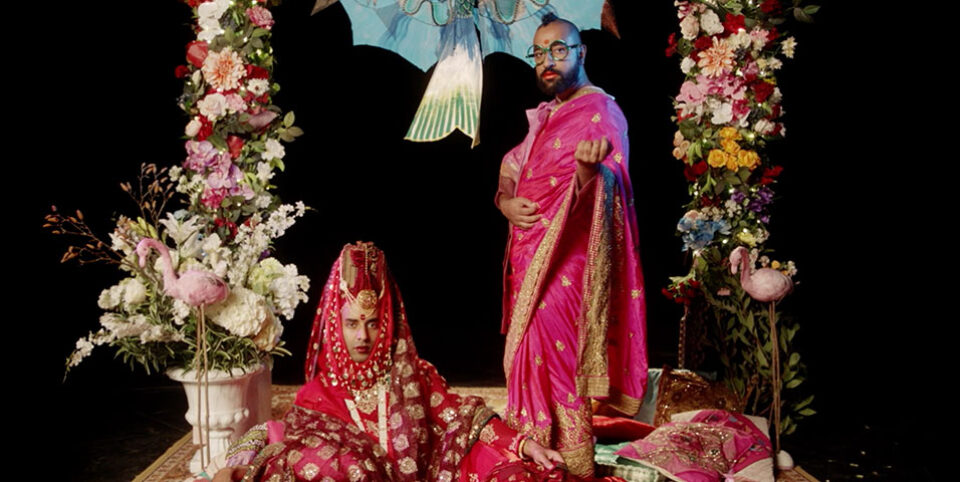
Each project and assessment task within the course offered me enough freedom and space to explore my creative voice and style while having enough restrictions that the project could be finished within the particular deadline, and it’s incredible viewing my own work and my peers’ works in the AFTRS theatre and watching everyone’s skills grow – including mine – with each project made.
Something that surprised me about the course was how each peer I shared the Masters with, despite being from other disciplines, offered invaluable feedback, reflection and guidance on my abilities. Their input helped me to deeply understand the vision and style I have and made me realise no one else can offer the exact same perspective and aesthetic I can. Making a number of projects and collaborating with all disciplines within the Masters gave me practice at developing collaboration skills, project management, learning about myself as a collaborator, and assisted me to find other creatives I work well with, and have creative similarities with, which stimulated a desire to continue working together. I have made many new friends at AFTRS and am hopeful some will become life-long creative collaborators.
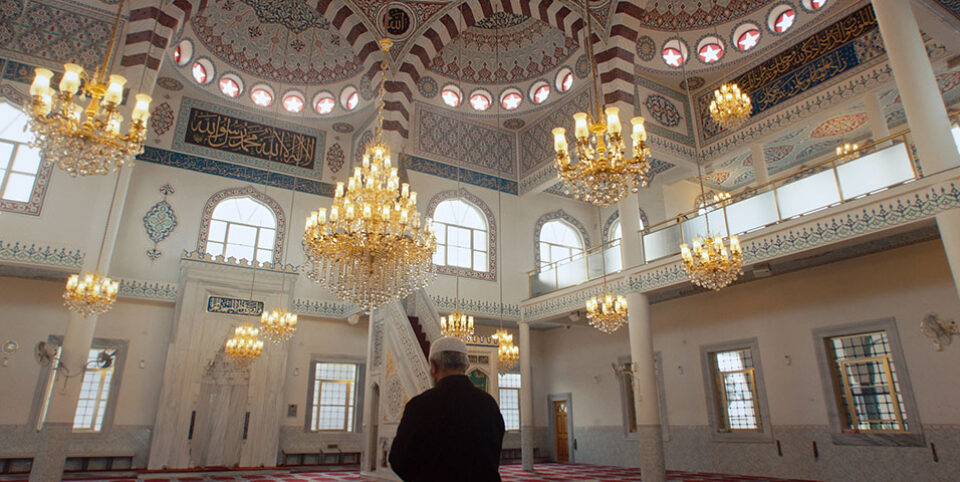
In first year, I had the opportunity to pitch a concept in the AFTRS/Sherman Centre for Culture and Ideas (SCCI) short film competition. The theme was ‘Accessing Architecture’ and my project, which won the competition, was called The Caretakers and was my personal response to the terrorist shootings which occurred at two mosques in Christchurch, New Zealand in 2019. The Caretakers is a 5-minute documentary that explores everyday devotion to spiritual architectural spaces through the prism of two caretakers from an Islamic mosque and a Jewish synagogue. Inspired by the SCCI brief, ‘Access to Architecture’, the film aims to give intimate, personal access to the locations these people care for, by inviting viewers to experience spaces they may otherwise never think to set foot inside. Celebrating architecture as a phenomenal medium for cultural expression, this film seeks to challenge the notion that sacrosanct spaces are exclusionary and aims to bridge the chasm between curiosity and prejudice to further cross-cultural understanding.
Along with the $6,000 prize money and production facilities provided, my team and I received mentorship from Oscar-winning producer Emile Sherman, MD of See-Saw Films (The King’s Speech, Lion, Shame, Top of the Lake). The project was screened to an audience at SCCI’s 2019 ‘Accessing Architecture’ Hub event and myself and the team were interviewed in a Q&A.
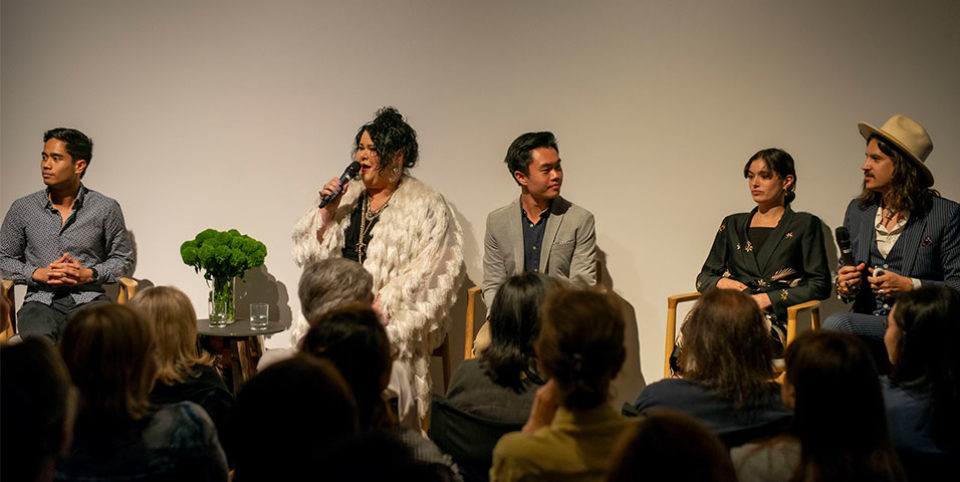
Studying at AFTRS gave me endless opportunities to make connections with other filmmakers, from my peers and teachers, to external filmmakers and members of the Australian and international filmmaking community. There are screenings and networking events, and endless impromptu moments to meet someone new when waiting for a coffee at the cafeteria, in the lift or at an AFTRS event. I have deeply appreciated the calibre of industry guests I have had the privilege of being taught by including directors Lynette Wallworth (Collisions, Awavena), Amiel Courtin-Wilson (Chasing Buddha, Bastardy), Asif Kapadia (Amy, Senna, Diego Maradona), Tamara Kotevska (Honeyland) and many more. Having access to such talented, experienced and professional creatives gives deep insight into how to approach a project from a creative and screen business perspective and is inspiring in terms of what it takes to be in a position of creative leadership. Meeting and being taught by them made the dream of making projects loved and seen by large audiences feel more achievable.
Another element I have greatly appreciated are the passionate, dedicated and knowledgeable Heads of Department. “Team Doco” is run by the brilliant Richard Welch and Alejandra Canales. Their input and encouragement are invaluable, and I have loved having intense mentoring on how to become a better documentary director, both in a personal and professional sense. I have also found every single Head of Department an incredibly important and helpful part of my journey. Each one does their best to answer questions generously, reflect, give feedback and nurtured me and my projects to be the absolute best they could be.
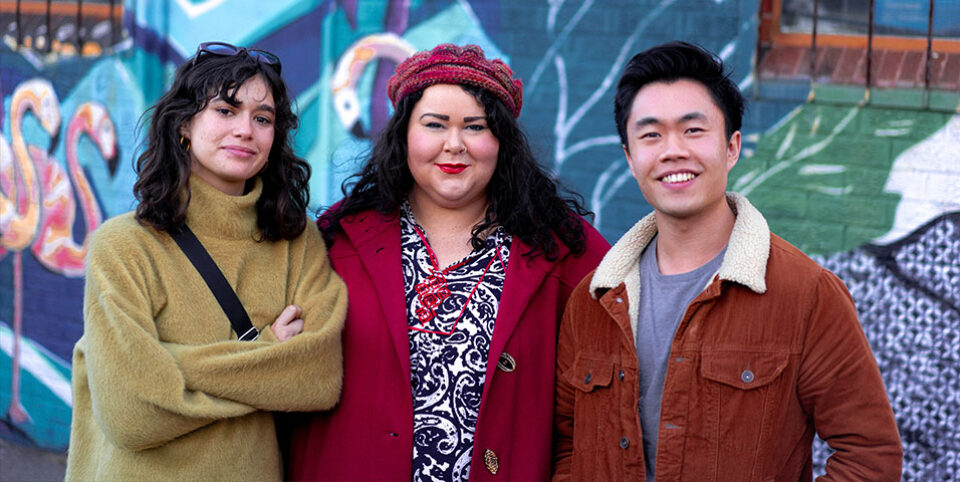
I’ve learnt that it’s worth making the sacrifices to pursue the career I’m really passionate about, and that developing a project with peers, teachers and industry professionals has taken my skills and project to an exemplary level, giving it the best chance to come to fruition, and to establish my career. I’ve also learnt that pressure is needed to grow. It’s hard to push myself out of my comfort zone the same way someone or something else external can and the Masters has asked things of me that no other situation has and given me the chance to rise to the challenge making me a stronger, more confident creative. I trust myself and my ability to create something meaningful, with high production values, that is a genuine contribution to Screen culture, more than ever before and studying at AFTRS has re-awoken my passion to pursue this in a long-term professional way.
AFTRS is the heart of filmmaking in Australia, and a place of real community where beginning, emerging and experienced industry practitioners meet. We all learn from and support each other. There is a connection to all aspects of the Screen industry, from guilds and festivals to funding and internship opportunities. My advice is if you have a passion for documentary, and have the desire to develop your love of photography, or journalism into making documentaries or come from a completely different background and have an idea for a specific project that just won’t leave you alone, that you follow that dream. Sometimes a story or message wants to come through us and find its audience and it will never leave us alone until we do that. The world needs documentary makers, story-tellers, and truth-seekers more than ever. I will end with three questions I learnt that have greatly helped me.
What story do you have to share with the world?
Why are you the best person to tell this story?
Why is it important to tell this story NOW?
